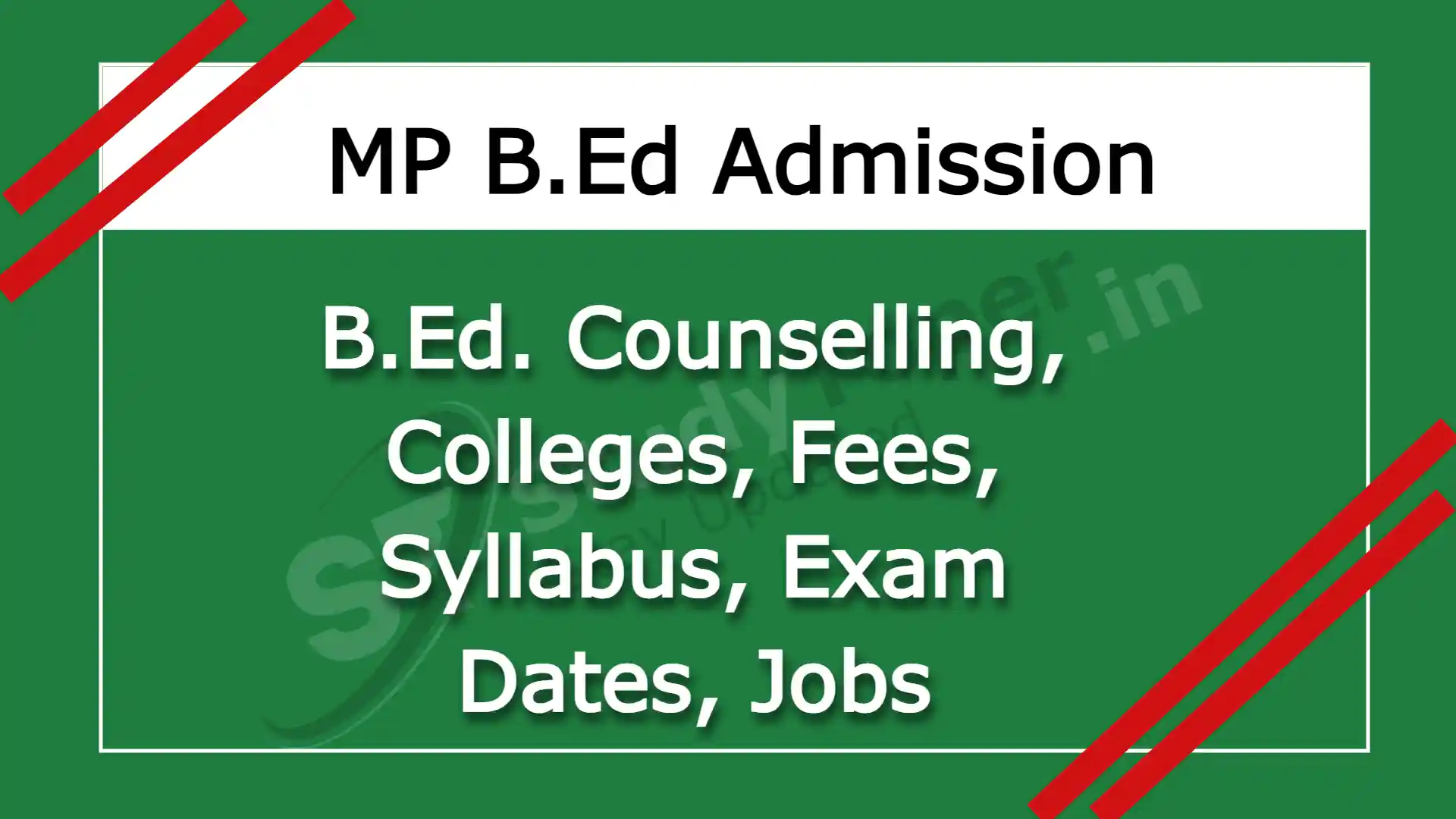The MP B.Ed Admission 2024 process is crucial for aspiring educators looking to pursue a career in teaching through the Bachelor of Education (B.Ed) program in Madhya Pradesh. This comprehensive guide aims to provide essential information about counseling procedures, colleges, fees, syllabus, exam dates, and job opportunities post-admission. Whether you are a prospective student or a parent seeking guidance, this article will serve as your all-in-one resource for navigating the complex landscape of B.Ed admissions in Madhya Pradesh.
Introduction
In recent years, the demand for qualified teachers has surged, making the B.Ed program one of the most sought-after courses in India. For students in Madhya Pradesh, securing admission into reputable colleges can be a daunting task. Understanding the nuances of the admission process, including counseling schedules and prerequisites, plays a pivotal role in shaping one’s educational journey. This article unveils everything you need to know about MP B.Ed Admission 2024.
Colleges Offering B.Ed Programs
Colleges play a significant role in shaping a student’s educational experience. In Madhya Pradesh, there are numerous institutions offering B.Ed programs, each with unique attributes. Choosing the right college can significantly impact your future career.
- Government Colleges: Often more affordable and well-regarded. They usually have experienced faculty and better infrastructure.
- Private Colleges: These may offer more specialized programs but often charge higher fees. Research their affiliations and placement records before enrolling.
- Distance Learning Institutions: Perfect for those who wish to study while working or managing other responsibilities. Ensure they are accredited.
- NCTE Approved Colleges: Always check for National Council for Teacher Education approval to ensure the quality of education.
B.Ed Counselling Process
Understanding the counseling procedure is vital for any candidate looking to secure a spot in a B.Ed program. The counseling process typically unfolds in several stages:
- Registration: Candidates must complete online registration by providing necessary documents and paying the required fees.
- Choice Filling: After registering, aspirants can fill in their preferred colleges based on available options.
- Merit List Release: Based on entrance exam scores, a merit list is published, determining which candidates receive admission offers.
- Verification: Document verification takes place at the designated centers to confirm authenticity and eligibility.
- Seat Allotment: Finally, candidates are allotted seats based on their merit and choices filled.
Fees Structure
Understanding the fee structure is essential for adequately preparing financially for your B.Ed studies. Here’s a breakdown:
- Government Colleges: Typically range from INR 20,000 to INR 50,000 per year, making them an economical choice.
- Private Colleges: Fees can range from INR 50,000 to INR 1,50,000 annually. Be sure to evaluate the value provided for the cost.
- Additional Costs: Consider extra expenses such as books, materials, and examination fees, which may add up to INR 10,000 – INR 20,000 annually.
- Scholarships: Many institutions offer scholarships or financial aid; research these options to alleviate financial burdens.
Exam Dates and Important Schedules
Staying updated with exam dates is crucial for a smooth admission process. Here are some key timelines to keep in mind:
- Entrance Exams: Generally, entrance exams are conducted in April or May; check the official website for exact dates.
- Result Declaration: Results are typically announced within a month of the exam, around June.
- Counseling Schedule: The counseling process usually begins in July and spans several weeks; stay vigilant for updates.
- College Commencement: Most colleges start their academic session in August; ensure all documentation is completed by then.
Job Opportunities After B.Ed
Completing a B.Ed opens up a multitude of career paths in the education sector. Graduates can explore various roles, including:
- School Teacher: The most common role, teaching primary, secondary, or higher secondary students.
- Educational Administrator: Overseeing school operations, policies, and staff management.
- Curriculum Developer: Designing educational content and resources for schools or educational publishers.
- Private Tutor: Providing personalized instruction to students in need of additional support.
- Education Consultant: Collaborating with schools and educational organizations to improve curricula and teaching methods.
Conclusion
MP B.Ed Admission 2024 can seem daunting, but with proper information and preparation, you can succeed. From understanding the counseling process and choosing the right college to being aware of fee structures and job prospects, this guide provides a solid foundation for your educational journey. Equip yourself with knowledge, stay proactive, and embrace the rewarding career that awaits you in education.
FAQ
What is the eligibility criteria for MP B.Ed Admission 2024? To be eligible, candidates generally must hold a bachelor’s degree with at least 50% marks from a recognized university. Specific requirements may vary by institution.
How are the seats allocated during the counseling process? Seats are typically allocated based on merit, which is determined by entrance exam scores and the candidate’s academic performance.
What are the job prospects after completing the B.Ed program? Graduates can work as school teachers, administrative staff in educational institutions, or take up roles in educational consulting and policy-making organizations.
Tags
- MP B.Ed Admission
- B.Ed Counselling
- B.Ed Colleges
- B.Ed Fees
